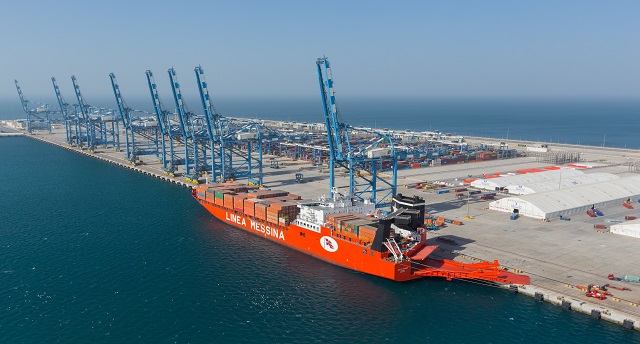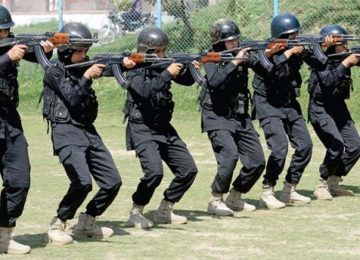December 28, 2017
The Chabahar port’s first phase was inaugurated by Iranian President Hassan Rouhani on December 3 which is considered to be a significant progress of Indian-Iran Chabahar Agreement signed in May 2016. At the same time, the port, as a transit station, also opened a new trade route between Afghanistan and India, bypassing Pakistan.
“Afghanistan used to rely only on one transit route, which was through Karachi. That is not the case anymore. Now Afghanistan also has the Chabahar option,” says Afghan CEO Abdullah Abdullah. As Pak-Afghan relations stay deteriorated due to recriminations regarding the support for terrorists by both sides, the new route apparently is more political in nature than it appears to be for economic benefit as it has almost zero economic feasibility if the lengths of the routes are measured from New Delhi to Kabul through Chabahar, which adds to the cost on the part of Afghanistan in carrying goods. Though India sent its first shipment of wheat to Afghanistan through the Chabahar port in October.
As it appears, India aims at rooting a deep Indian influence in Afghanistan which may pose a strategic threat to Pakistan, where Pakistan has persistently refused all proposals to allow Indian transit goods to pass through Pakistan to Afghanistan, even though the Afghanistan-Pakistan Transit Trade Agreement (APTTA) calls for it. The worse development is that earlier this month President Ghani issued a decree banning trucks from Pakistan to cross into Afghanistan which claimed the expiration of APTTA.
Despite the impossibility of shutting politics out, regional stakeholders should realize that playing political games in economic cooperation is costly and can frustrate all efforts aimed at cooperation.
Chabahar port is also considered a competitor to Gwadar port, which is only 200 kilometers away and launched to become the regional center of economy and trade in the near future under the $62-billion CPEC project. While answering questions by journalists, Chinese foreign ministry spokesman commented that China is interested in seeing regional countries keep good relations and maintain cooperation, while at the same time, China hopes that such cooperation would contribute to the peace and stability of the region. Previously China proposed a development strategy, the Belt and Road Initiatives (BRI), which called for extensive collaborations among Asian and Eurasian countries.
In fact, CPEC as the most important part of BRI is more economical and viable route for Afghanistan to connect to the external world, and even New Delhi. This route seems to be part of the CPEC plan, at least hypothetically. Interestingly, earlier this year, only after three days of his presidency, US President Donald Trump, withdrew the Trans-Pacific Partnership which was considered a group apparently meant for isolation of Chinese isolation.
Recently when discussing the CPEC Long Term Plan with Chinese officials, Ahsan Iqbal, the Minister for Planning, Development and Interior, stated that the Mainline (ML-1) from Karachi to Peshawar would be extended to Torkham border. In the same meeting, Chinese Ambassador Yao Jing said that CPEC is a common agenda of development, which would be expanded to neighboring countries and regions in the future.
To remove the connection baffle among the regional countries, Pakistan should play the key role in improving the relations with neighbors. It is a critical time for Pakistan to reopen the Islamabad- Kabul-New Delhi route.
Fortunately, there are some good signs and gestures shown in recent times by Pakistan and Afghanistan. Few days back, due to the efforts of an unofficial dialogue, members of Pakistani and Afghan parliament, retired military officials, ambassadors, traders, members of civil society and media persons raised their voices to urge their governments to strengthen bilateral ties.
Despite their security disputes, Pak-Afghan friendship can be revived through communication and trade exchange along their long border. On the other hand, there have also been economic ties between Pakistan and India. Keeping this in view, there is a high probability that using CPEC as a catalyst, the cooperation needed to cash in huge potential of economic cooperation among regional countries can be developed in near future, which may further contribute to the peace and stability of South Asia.
The author Frank Sun is a researcher working at the Center for Research and Security Studies (CRSS), Islamabad. He is also currently enrolled in a PhD program in China.
© Center for Research and Security Studies (CRSS) and Afghan Studies Center (ASC), Islamabad.








